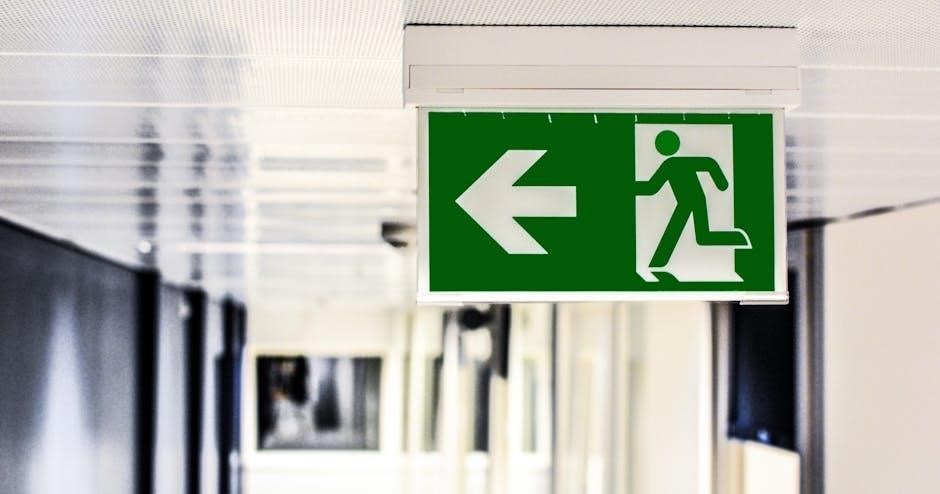The American Mountain Guides Association (AMGA) offers professional certification for guides in Rock, Alpine, and Ski disciplines, ensuring the highest standards of safety and client satisfaction.
Overview of AMGA and Its Role in Guide Certification
The American Mountain Guides Association (AMGA) is a nonprofit organization dedicated to establishing and maintaining the highest standards for mountain guiding in the United States. By certifying guides in Rock, Alpine, and Ski disciplines, the AMGA ensures that professionals meet rigorous criteria for technical proficiency, safety, and client care. Its role is to promote excellence and consistency in the guiding industry, providing a framework for guides to demonstrate their expertise and commitment to best practices.
The AMGA certification is recognized nationally and internationally, with endorsements from the International Federation of Mountain Guides Associations (IFMGA) and the Union of International Mountain Leader Associations (UIAA). This recognition underscores the AMGA’s critical role in upholding global standards for mountain guiding, ensuring that certified guides are equipped to lead clients safely and effectively in diverse terrain.
Importance of AMGA Certification for Professional Guides
AMGA certification is essential for professional guides as it validates their expertise and commitment to safety, enhancing their credibility and career prospects. Recognized by the IFMGA and UIAA, it ensures guides meet international standards, building client trust and confidence. The certification demonstrates a guide’s ability to manage risks, lead effectively, and provide high-quality experiences, making it a critical credential for advancing in the guiding profession and accessing global opportunities.
Endorsement by IFMGA and UIAA
The AMGA certification is endorsed by the International Federation of Mountain Guides Associations (IFMGA) and the International Mountaineering and Climbing Federation (UIAA). These endorsements confirm that AMGA standards align with global best practices, ensuring guides meet rigorous international requirements. This recognition enhances the credibility of certified guides worldwide, particularly in countries where IFMGA certification is mandatory for professional guiding. The endorsement also signifies a commitment to safety, professionalism, and adherence to universal mountaineering standards.

Process of Obtaining AMGA Guide Certification
Obtaining AMGA certification involves completing prerequisites, enrolling in required courses, passing rigorous exams, and meeting specific costs and time commitments to achieve professional guiding credentials.
Prerequisites for Enrollment
To enroll in the AMGA certification program, candidates must meet specific prerequisites, including current CPR certification, Wilderness First Responder (WFR) or higher, and AMGA membership. They must also demonstrate proficiency in their chosen discipline, such as rock climbing at a 5.10 difficulty level. Additionally, completion of foundational courses, like the Rock Instructor Course for Alpine Guide enrollment, is required. These prerequisites ensure candidates possess the necessary skills and knowledge to successfully progress through the certification process.
Required Courses and Training Programs
The AMGA certification process includes a series of rigorous courses tailored to specific disciplines: Rock, Alpine, and Ski. These courses are designed to build technical skills and leadership abilities. For Rock Guide certification, candidates must complete the 8- or 10-day Rock Guide Course, followed by the Advanced Rock Guide Course and Aspirant Exam. Alpine and Ski certifications involve similar multi-day courses, with additional requirements like AIARE avalanche safety training. Each course combines classroom instruction with hands-on field training, ensuring comprehensive preparation for guiding clients safely and effectively in diverse terrain.

Exams and Assessments
The AMGA certification process includes a series of rigorous exams and assessments to evaluate a guide’s technical proficiency, decision-making, and leadership skills. The Rock Guide Exam tests abilities on multi-pitch climbs, with a 5.10 difficulty standard. The Alpine Exam includes ice climbing and glacier travel assessments, while the Ski Exam focuses on avalanche safety and backcountry navigation. Each exam is multi-day, with practical scenarios designed to simulate real-world guiding challenges, ensuring candidates meet the highest industry standards for safety and competence in their respective disciplines.
Costs and Timeframe
Obtaining AMGA certification is a significant investment, with costs exceeding $30,000 for all three disciplines. The process spans several years, requiring over 100 days of instruction and examination. Additional expenses include travel, lodging, and equipment. Candidates must also accumulate extensive field experience, with a minimum of 100 days guiding in various terrains. The timeframe varies depending on discipline, with Alpine certification being the most time-intensive. Advanced certifications, such as the IFMGA pin, require further investment and time, ensuring guides meet the highest international standards.

Benefits of AMGA Certification

AMGA certification enhances credibility, boosts professional standing, and builds client trust. It demonstrates a commitment to safety, risk management, and maintaining the highest industry standards for guides.
Enhanced Credibility and Professional Standing
AMGA certification elevates a guide’s professional reputation, demonstrating expertise and adherence to rigorous standards. Recognized by the IFMGA and UIAA, it signifies a guide’s ability to operate at the highest international level. Achieving certification places guides in an elite group, with less than 100 American men and 10 women having attained full IFMGA recognition. This credential opens doors to exclusive professional networks and advanced career opportunities, while also distinguishing certified guides as leaders in their field. It underscores a commitment to continuous improvement and industry excellence.
Improved Career Opportunities
AMGA certification significantly enhances employability in the guiding industry, offering access to global job markets. Certified guides meet the high standards required by international organizations like IFMGA and UIAA, making them highly sought after by reputable guide services and tour operators. The credential opens doors to advanced roles and specialized guiding opportunities, particularly in Rock, Alpine, and Ski disciplines. Employers often prioritize certified guides due to their proven expertise, ensuring a competitive edge in the job market and the ability to work in diverse, challenging environments worldwide.
Increased Client Trust and Satisfaction
AMGA certification fosters client trust by ensuring guides meet rigorous, industry-recognized standards. Clients recognize the credential as a mark of expertise, safety, and professionalism. Certified guides demonstrate exceptional judgment, risk management, and technical skills, leading to safer and more enjoyable experiences. This trust translates to higher client satisfaction, as they feel confident in their guide’s ability to lead them through challenging terrain. The certification also highlights a guide’s commitment to delivering memorable and secure adventures, enhancing overall client loyalty and referrals.
Commitment to Risk Management and Safety
AMGA certification emphasizes rigorous training in risk management and safety protocols, ensuring guides are adept at assessing hazards and implementing secure practices. Through extensive training, certified guides develop the skills to navigate complex terrain, make sound decisions, and respond effectively in emergencies. This commitment to safety not only protects clients but also builds trust and credibility in the guide’s expertise, fostering a secure and reliable experience for all participants.

Training and Courses
AMGA offers comprehensive training in Rock, Alpine, and Ski disciplines, combining theoretical knowledge with hands-on experience to ensure guides master technical skills and practical applications effectively.
Different Disciplines: Rock, Alpine, and Ski
The AMGA certifies guides in three distinct disciplines: Rock, Alpine, and Ski. Rock guides specialize in multi-pitch climbs and technical rope skills. Alpine guides master glacier travel, crevasse rescue, and ice climbing. Ski guides focus on backcountry skiing, avalanche safety, and winter terrain navigation. Each discipline requires specific training, exams, and field experience, ensuring guides are proficient in their chosen specialty. This structured approach allows professionals to tailor their expertise to specific environments and client needs, enhancing safety and effectiveness in the mountains.

Course Structure and Content
The AMGA certification process includes a structured curriculum with hands-on training and theoretical knowledge, covering essential skills for each discipline. Areas such as rope systems, anchor placement, and hazard assessment are thoroughly taught to ensure guides can manage various terrain and conditions effectively. Experienced instructors lead interactive sessions, focusing on real-world applications to enhance decision-making and client safety. Each discipline-specific course is designed to build proficiency in unique environments, ensuring guides are well-prepared for the challenges they may face. From fundamental techniques to advanced methodologies, the curriculum ensures a deep understanding of guiding principles and best practices.
Qualifications and Experience of Instructors
AMGA instructors are highly qualified professionals with extensive experience in mountaineering and guiding. Many hold IFMGA certification, the highest international standard, and have decades of experience leading expeditions worldwide. They are experts in technical skills, risk management, and client safety. Instructors often have backgrounds in competitive climbing or exploration, with achievements like first ascents or award-winning expeditions. Their deep knowledge and hands-on teaching methods ensure students receive comprehensive training, preparing them for real-world challenges in guiding. Their expertise is unparalleled, making them ideal mentors for aspiring guides.
Practical Training and Real-World Application
AMGA certification emphasizes hands-on learning through practical training in real-world scenarios. Guides engage in extensive fieldwork, applying skills like rope management, route-finding, and rescue techniques. The program includes structured courses where instructors simulate challenging conditions, allowing students to refine their decision-making and leadership abilities. Practical exams assess a guide’s ability to manage clients safely and effectively in diverse terrain. This approach ensures that certified guides are well-prepared to handle the complexities of guiding in dynamic outdoor environments, providing clients with safe and memorable experiences.

Maintenance of Certification
Maintenance of AMGA certification involves continuing education, recertification processes, staying updated with industry standards, and opportunities for professional networking to ensure safe and professional guiding services.
Continuing Education Requirements
AMGA certification requires guides to complete continuing education courses to stay updated on industry standards, safety protocols, and best practices. These courses focus on advanced skills, risk management, and professional development. Guides must also participate in workshops, seminars, and hands-on training to maintain their credentials. Additionally, they are encouraged to pursue specialized certifications in areas like avalanche safety or wilderness first aid. This ensures guides remain competent and current, providing high-quality, safe experiences for clients in dynamic outdoor environments.
Recertification Process
The AMGA recertification process ensures guides maintain high standards of competency and safety. Guides must complete periodic exams and assessments to evaluate their skills and knowledge. These evaluations focus on practical application, risk management, and adherence to industry protocols. Recertification typically occurs every few years, depending on the discipline, and requires guides to demonstrate continued professionalism and expertise. The process also involves submitting proof of ongoing professional development and experience. This ensures guides remain qualified to lead clients safely and effectively in diverse terrain and conditions.
Staying Updated with Industry Standards
The AMGA requires certified guides to stay current with industry standards through ongoing education and professional development. Guides must participate in workshops, seminars, and training sessions to adapt to new techniques and technologies. The AMGA provides resources, including updated manuals and online courses, to help guides maintain their expertise. Additionally, guides are encouraged to engage with professional networks and attend industry events to share knowledge and learn from peers, ensuring they remain at the forefront of guiding practices and safety protocols.
Professional Networking Opportunities

AMGA certification provides access to a vibrant community of professional guides, fostering networking and collaboration. Members can connect with experienced guides, share knowledge, and gain insights into best practices. The AMGA hosts events, workshops, and conferences, offering platforms for guides to build relationships and stay informed about industry trends. These opportunities not only enhance professional growth but also create pathways for mentorship and partnership, strengthening the guiding community as a whole.
